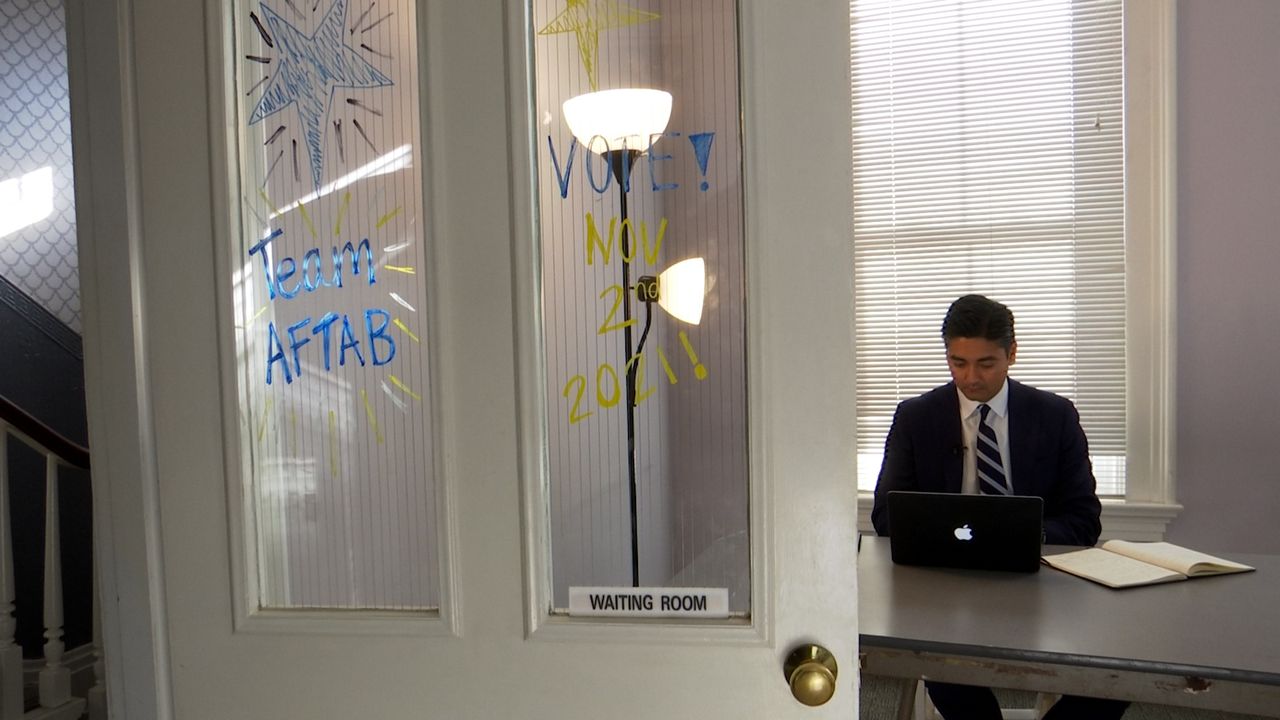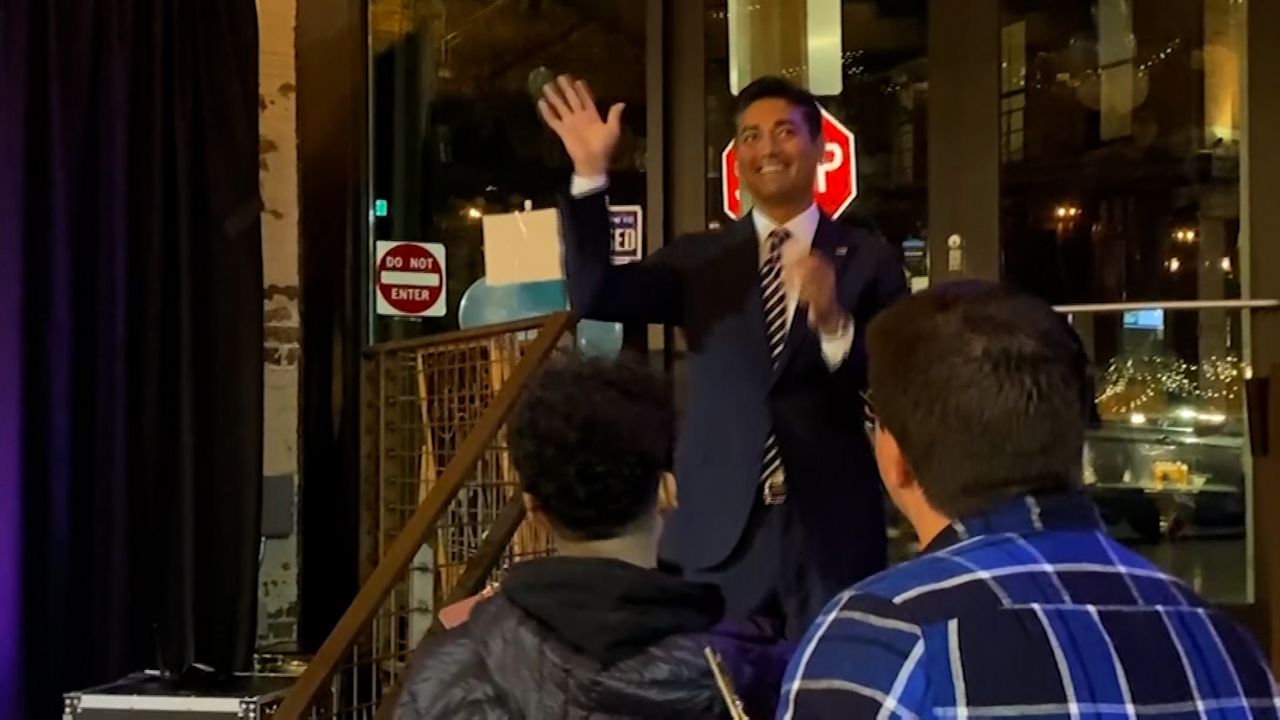CINCINNATI — The son of an Indian immigrant father and Tibetan refugee mother, Hamilton County Clerk of Courts Aftab Pureval will make history when he takes office on Jan. 4. As the city’s first Asian American mayor, he’ll preside over a city council made up almost entirely of newcomers.
Winning with 65.8% of the vote, Prevail said the results send a clear message, Cincinnati is ready for a new era of city politics and it’s on him and the new council to deliver.
Pureval, 39, replaces John Cranley, who has held the seat for eight years and is now running for governor.
Throughout the campaign, he billed himself as a fresh face bringing bold, new ideas to city hall, focusing on four issues, economic recovery and equitable development, affordable housing, climate change and the environment, and public safety. Now, as he prepares to take office, Pureval said he’s been meeting with city leaders and stakeholders on those issues to ensure actionable plans as soon as possible.
“The work has already started in my administration,” he said.

Pureval announced his transition team in mid-November and started work developing a 100-day Action Plan to make headway on those issues.
As the city continues to recover from the coronavirus pandemic, Pureval said he’s been meeting with business leaders and neighborhood councils to learn what they believe they need to spread growth and development out to all of the city’s neighborhoods. Outside his Mt. Auburn office, he used the surrounding business corridor as an example.
“Mt. Auburn sits strategically just north of the central business district and Over the Rhine where a lot of growth is happening and just south of the University of Cincinnati where there’s incredible growth as well,” he said.
While Pureval said he’d like to continue that momentum, he said it’s also important to consider neighborhood voices throughout the process. He hopes to establish a streamlined method to ensure those voices are heard, that’s understood by neighbors and developers alike.
“We have to have consistent and predictable engagement with our community in order to attract private dollars to come here and be an effective and efficient place to develop.”
As for affordable housing, Pureval said his experience as clerk of courts has revealed the impact of the city’s shortcomings.
“Right now we don’t have a comprehensive strategy for housing and we see it every day in eviction court, where in the middle of a pandemic, families, disproportionately black women with children are being evicted,” he said.
As clerk, Pureval started a legal clinic to help tenants facing eviction find resources to help them, but he said as mayor, he hopes to address the situation more proactively.
“It starts with reviewing and reforming our zoning code. So much of our city prohibits multi-family units, 70% of our city prohibits multi-family units. That is artificially keeping our supply of housing down which is artificially increasing rents and increasing property taxes,” he said.
Pureval said the city also needs to be strategic about its use of tax abatements, ensuring they’re going to projects that will develop low-income, affordable and market-rate housing outside of the city’s wealthiest neighborhoods.

As for the environment, Pureval established a new council committee dedicated to the issue. Meeka Owens, a first-time council member will head the first-ever Climate, Environment, and Infrastructure Committee, in which she said she’ll focus on reducing emissions and building sustainable infrastructure to mitigate and cope with the effects of a changing climate.
“Not only will our city benefit but our regions will as well,” she said.
Pureval’s final campaign promise was also his most controversial. Attack ads leading up to the election called his ideas to reform the city police department dangerous and unrealistic, claiming Pureval’s policies would disempower officers.
“I do not support defunding the police,” Pureval said. “What I’ve said from the very beginning what my public safety plan calls for is levering resources.”
To Pureval, that means looking for federal funding opportunities to funnel more resources towards prevention and mental health services as well as traditional policing. He reiterated though, that the city should be strategic about how and when armed officers should be deployed and supports the idea of unarmed crisis officers serving as an option for non-emergency situations.
“To focus [police] on violent crime and get police away from issues that don’t warrant their attention or aren’t a high priority for our city,” he said.
The new mayor will get the chance early on to make an impact on city policing as he begins the search for Cincinnati’s next police chief. This summer, Chief Eliot Isaac announced he would retire in early 2022 and Pureval said he’ll open up a national search for his replacement in the first few days of his term.
“What we are looking for is a law enforcement professional who believes deeply in what we have created here which is the national model: the Cincinnati collaborative agreement,” Pureval said.
The collaborative agreement on police-community relations was developed in response to the Timothy Thomas shooting in 2001, to create more transparency and accountability between the Cincinnati police and the community it serves.
Pureval acknowledges not all of his reforms will be popular. He said he’s already met with some of his critics such as the fraternal order of police, which endorsed his opponent, David Mann. Pureval said he’s open to compromise and believes he can find common ground with many of these groups, but he said in the end, he’s bound to the promises that won over voters.
“By a historic margin, they voted for change and that’s on us to deliver,” he said.



